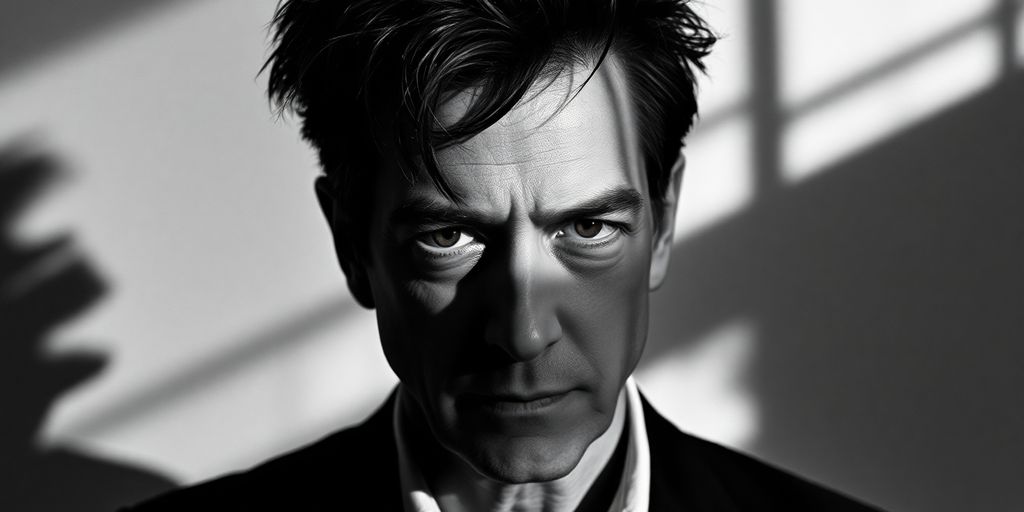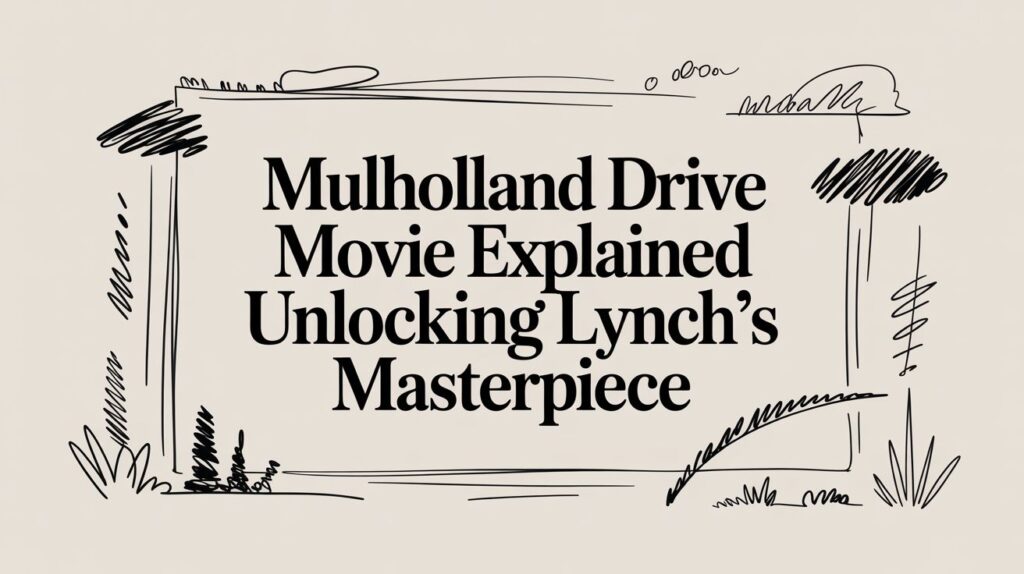Exploring The Life Of David Lynch: A Journey Through His Art and Influence

David Lynch, a name that stands out in the world of film and art, has a story as intriguing as his work. Born in Missoula, Montana, Lynch’s early life was shaped by the American suburbs, which later influenced his creative vision. From his first steps in art and education to his unique style in filmmaking, Lynch has always been a bit of an enigma. His films and TV shows, like ‘Eraserhead’ and ‘Twin Peaks’, have left a lasting mark on pop culture. But Lynch isn’t just about movies; his contributions to visual arts and his personal philosophies add more layers to his persona. This article takes a look at the life of David Lynch, exploring how his art and ideas continue to inspire and challenge us today.
Key Takeaways
- David Lynch’s upbringing in Montana and the suburbs played a big role in shaping his unique artistic vision.
- His filmmaking style is known for its surreal elements, symbolism, and innovative techniques.
- Lynch’s works like ‘Eraserhead’ and ‘Twin Peaks’ have become iconic in the film and TV industry.
- Beyond film, Lynch has contributed significantly to visual arts, including painting and photography.
- His influence extends to modern culture, impacting filmmakers and creating dedicated fan communities.
Early Life and Inspirations of David Lynch

Childhood in Missoula, Montana
David Lynch was born in the quiet town of Missoula, Montana. Growing up in the 1940s and 50s, Lynch’s early years were marked by the serene yet mysterious landscapes of the American Northwest. The vast open spaces and dense forests would later play a significant role in shaping his artistic vision. Lynch often reminisced about the sense of wonder and curiosity that his childhood environment instilled in him.
Influence of American Suburbia
Moving to suburban America during his teenage years, Lynch encountered the peculiarities of suburban life. This setting, with its manicured lawns and seemingly perfect facades, often hid more unsettling truths. Lynch’s work frequently explores this contrast, capturing the eerie undercurrents of everyday life. He was fascinated by the duality of the American dream and the hidden darkness lurking beneath it.
Artistic Beginnings and Education
Lynch’s artistic journey began with painting, which he pursued passionately during his high school years. He later attended the Pennsylvania Academy of the Fine Arts, where he honed his skills and developed a unique style. It was here that Lynch’s interest in combining visual art with storytelling blossomed. His education laid the groundwork for his future endeavors in filmmaking, where he seamlessly blended surreal imagery with narrative depth.
Lynch’s early experiences and artistic explorations were not just about creating art; they were about understanding the world around him. His childhood and education were the seeds that grew into a career that would challenge and redefine the boundaries of cinema.
For those interested in exploring more about philosophies and personal growth, engage with thought-provoking content that challenges misconceptions and encourages a deeper understanding of life and beliefs.
David Lynch’s Unique Filmmaking Style

Surrealism and Symbolism in His Work
David Lynch is a master of surrealism, crafting worlds that are both strange and familiar. His films often blur the line between reality and dreams, leaving viewers questioning what they’ve just seen. Lynch’s use of symbolism is profound, with recurring motifs like red curtains and flickering lights that add layers of meaning. His storytelling doesn’t follow traditional patterns, instead weaving a tapestry of images and sounds that evoke emotion rather than logic.
The Role of Music and Sound
In Lynch’s films, music and sound are not just background elements; they are integral to the storytelling. He often collaborates with composer Angelo Badalamenti to create haunting scores that linger long after the movie ends. The sound design in his films is meticulous, with eerie noises and ambient sounds that build tension and atmosphere. Silence, too, plays a crucial role, often used to heighten suspense or underscore a dramatic moment.
Cinematic Techniques and Innovations
Lynch is known for his innovative cinematic techniques, pushing the boundaries of what film can do. He experiments with lighting, camera angles, and editing to create a unique visual style. His films often feature long, unbroken takes that draw the audience into the scene. Lynch also uses practical effects and in-camera tricks to achieve a surreal look, avoiding CGI whenever possible. This hands-on approach gives his work a distinctive, tactile quality that sets it apart.
Iconic Films and Television Series by David Lynch
The Impact of ‘Eraserhead’
David Lynch’s first major film, ‘Eraserhead’, is a wild ride. It’s not just a film; it’s an experience. The surreal and disturbing imagery in ‘Eraserhead’ set the tone for Lynch’s career. This movie is like nothing else. It’s a strange blend of horror, surrealism, and dark comedy that leaves you thinking about it long after the credits roll. With its eerie soundtrack and bizarre visuals, ‘Eraserhead’ quickly became a cult classic, influencing countless filmmakers and artists.
Exploring ‘Twin Peaks’ Phenomenon
‘Twin Peaks’ was a game-changer for TV. When it hit the screens in the early ’90s, it was like nothing else on television. The mix of mystery, supernatural elements, and quirky small-town drama captured the audience’s imagination. Fans were hooked on finding out who killed Laura Palmer. The show’s unique style and storytelling have left a lasting mark on modern television, inspiring shows like ‘The X-Files’ and ‘Lost’.
Legacy of ‘Mulholland Drive’
‘Mulholland Drive’ is often hailed as Lynch’s masterpiece. It’s a film that takes you on a twisted journey through the dark side of Hollywood. The plot is like a puzzle, with pieces that don’t quite fit until the very end. Dreamlike sequences and a haunting score add to the film’s mystique. This movie pushes the boundaries of traditional storytelling, leaving viewers to interpret its meaning. It’s a film that invites discussion and analysis, cementing Lynch’s status as a visionary director.
Lynch’s work in film and television continues to captivate audiences, pushing the limits of storytelling and visual artistry. His unique vision has not only defined his career but also inspired a generation of creators.
David Lynch’s Contributions to Visual Arts
Exploration of Painting and Sculpture
David Lynch isn’t just a filmmaker; he’s a visual artist too. His journey into painting and sculpture is as interesting as his films. Lynch started painting long before he picked up a camera. His works often have a dark, abstract feel, similar to his movies. He uses paint to express emotions that words can’t capture. His sculptures, on the other hand, are like three-dimensional versions of his paintings, full of mystery and intrigue.
Photography and Digital Art
Lynch’s exploration of photography and digital art is another testament to his creativity. His photos often feature eerie landscapes and unusual compositions, making you feel like you’re in one of his films. Photography, for Lynch, is about capturing a moment that tells a story. In digital art, he experiments with new forms and techniques, always pushing boundaries.
Exhibitions and Collaborations
Lynch’s art has been showcased in exhibitions worldwide. He’s collaborated with other artists, blending different styles and ideas. These exhibitions are a chance for fans to see another side of Lynch’s creativity. They highlight his ability to cross boundaries between different art forms, showing that his talent isn’t limited to the screen.
Lynch once said that art is like a magnet, pulling you into a world of its own. His contributions to visual arts reflect this belief, drawing viewers into his unique universe.
The Influence of David Lynch on Modern Culture
Impact on Contemporary Filmmakers
David Lynch’s films are often described as revelatory and visionary, showcasing his unique ability to unveil the hidden aspects of life. His distinctive style and storytelling have solidified his status as an iconic figure in cinema. Lynch’s work has left a significant mark on contemporary filmmakers. Directors like Quentin Tarantino and Christopher Nolan have openly acknowledged Lynch’s influence on their approach to storytelling and visual style. Lynch’s ability to blend surrealism with raw emotion has inspired a whole generation of filmmakers to push the boundaries of conventional narratives.
References in Popular Media
Lynch’s impact isn’t just limited to filmmakers; his influence seeps into various forms of popular media. TV shows like "The X-Files" and "Stranger Things" carry echoes of Lynch’s eerie, atmospheric style. Even music videos and fashion have borrowed elements from his unique aesthetic. The use of dreamlike sequences and cryptic symbolism in Lynch’s work has become a staple in modern storytelling, making his influence pervasive across different media.
Cult Following and Fan Communities
Lynch has cultivated a dedicated fan base that thrives on the mystery and depth of his work. Fans gather at conventions, screenings, and online forums to discuss theories and interpretations of his films and TV shows. Lynch’s work encourages a participatory culture where fans actively engage with the content, creating fan art, writing fan fiction, and even organizing "Twin Peaks" festivals. This vibrant community is a testament to Lynch’s enduring impact on his audience.
Lynch’s influence extends beyond the screen, shaping the way we experience and interpret stories. His work challenges viewers to think differently, to question reality, and to embrace the unknown.
David Lynch’s Philosophies and Personal Beliefs
Meditation and Transcendental Practices
David Lynch is a big advocate for meditation, especially Transcendental Meditation (TM). He says it’s like diving into a deep ocean of calmness and creativity. Every day, he sets aside time to meditate, believing it helps clear his mind and spark new ideas. Lynch thinks TM is a tool that not only enhances creativity but also brings a sense of peace and happiness. He even started the David Lynch Foundation to promote TM, helping people find balance in their lives.
Views on Creativity and Art
Lynch sees creativity as a boundless ocean, where ideas flow freely when the mind is open. He argues that creativity isn’t something you force; instead, it comes naturally when you’re in the right mindset. Lynch believes that staying true to one’s vision is crucial, even when it means going against the grain. He often emphasizes that art is about exploration and discovery, not just following trends or seeking approval. For Lynch, creating art is a personal journey, one that requires courage and authenticity.
Personal Reflections and Interviews
In various interviews, Lynch has shared his thoughts on life, art, and the universe. He often talks about the importance of staying curious and open-minded. Lynch believes that every experience, whether good or bad, contributes to one’s personal growth. He often reflects on how his own life experiences have shaped his work, from his childhood in Montana to his fascination with the mysteries of the human mind. Lynch’s personal reflections reveal a man who is constantly seeking, questioning, and evolving.
Lynch once said, "Ideas are like fish. If you want to catch little fish, you can stay in the shallow water. But if you want to catch the big fish, you’ve got to go deeper." This metaphor captures his approach to creativity and life, encouraging others to dive beneath the surface to find true inspiration.
In exploring Lynch’s philosophies, it’s clear that his approach to life and art is deeply personal and introspective. His commitment to meditation, creativity, and personal growth offers a unique perspective on how one can live a fulfilling and meaningful life.
Awards and Recognitions in David Lynch’s Career
Academy Awards and Nominations
David Lynch, a filmmaker known for his unique storytelling style, has been acknowledged by the Academy of Motion Picture Arts and Sciences multiple times. Although he hasn’t won an Oscar, Lynch has received three nominations for Best Director for the films "The Elephant Man," "Blue Velvet," and "Mulholland Drive." These nominations reflect his ability to create films that are both thought-provoking and visually stunning. His work continues to be celebrated for its originality and artistic depth.
Cannes Film Festival Accolades
Lynch’s relationship with the Cannes Film Festival is noteworthy. He won the prestigious Palme d’Or for "Wild at Heart" in 1990. This award is one of the highest honors in the film industry and solidified Lynch’s status as a visionary filmmaker. Additionally, "Mulholland Drive" earned him the Best Director award at Cannes, further highlighting his impact on international cinema.
Lifetime Achievement Honors
Over the years, Lynch has been the recipient of numerous lifetime achievement awards. In 2019, he was honored with an Honorary Academy Award for his contributions to the art of cinema. This award was a testament to his influence and the lasting impact of his work on both filmmakers and audiences around the world. Lynch has also received similar accolades from various film festivals and organizations, recognizing his innovative approach to storytelling and his enduring legacy in the world of film.
Lynch’s accolades are a testament to his ability to challenge conventional narratives and push the boundaries of cinema. His work not only entertains but also invites audiences to explore deeper meanings and question reality.
Wrapping Up Our Look at David Lynch
So, there you have it. David Lynch, a guy who’s made a huge mark on the world of art and film, is nothing short of fascinating. His work is like a puzzle, sometimes confusing, but always intriguing. Whether it’s his movies, TV shows, or even his paintings, Lynch has a way of making you think and feel in ways you didn’t expect. It’s clear that his influence stretches far and wide, touching not just fans but other artists too. As we wrap up this journey through his life and work, it’s safe to say that Lynch’s unique style and vision will keep inspiring and puzzling people for years to come. And honestly, isn’t that what great art is all about?
Frequently Asked Questions
Where was David Lynch born?
David Lynch was born in Missoula, Montana.
What is David Lynch’s filmmaking style known for?
David Lynch’s filmmaking style is known for its surrealism and symbolism.
What was the impact of ‘Eraserhead’?
The film ‘Eraserhead’ became a cult classic and showcased Lynch’s unique style.
How did ‘Twin Peaks’ influence television?
‘Twin Peaks’ changed TV by introducing a mix of mystery, drama, and the surreal.
What are some of David Lynch’s contributions to visual arts?
David Lynch has explored painting, sculpture, photography, and digital art.
Has David Lynch won any major awards?
Yes, David Lynch has received several awards, including Cannes Film Festival accolades and lifetime achievement honors.








Responses